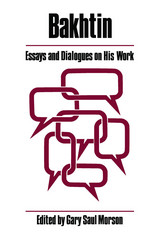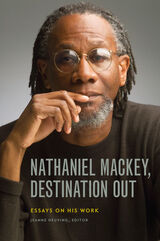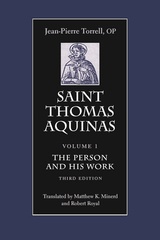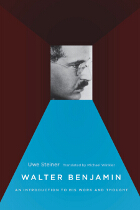
Allen Tate and His Work was first published in 1972. Minnesota Archive Editions uses digital technology to make long-unavailable books once again accessible, and are published unaltered from the original University of Minnesota Press editions.
The thirty-five essays and memoirs about Allen Tate which are collected in this volume along with the introduction by Radcliffe Squires provide a perceptive, many-windowed view of Tate's work and his life. Poet, critic, novelist -- Tate is all of these, and the selections, reflecting these various aspects of his career, are arranged in sections entitled "The Man," "The Essayist," "The Novelist," and "The Poet." As Professor Squires points out, the last three divisions take cognizance of the astounding diversity of Tate's achievement. "But in a last analysis," he continues, "the divisions are an Aristotelian nicety, an arbitrary convenience. His work is really all of a piece. It has all derived from the same energy, the same insights. It has all had a single aim."
What is that aim? Squires compares it to a simple physics experiment in which students are taught the principles of pressure, and he goes on to explain: "The synergy of Allen Tate's poetry, fiction, and essays has had the aim of applying pressure—think of the embossed, bitterly stressed lines, his textured metaphors—until it brings up before our eyes a blanched parody of the human figure, which is our evil, the world's evil, so that we begin to long for God. That has seemed to him a worthwhile task to perform for modern man threatened by such fatal narcissism, such autotelic pride that he is in danger of disappearing into a glassy fantasy of his own concoction. We shall need his help for a long time to come."
The selections were first published in a variety of periodicals and books over the years. The volume includes a substantial bibliography.


A pioneer in the birth control movement both in the United States and abroad, Dr. Clarence J. Gamble began his work as a volunteer in Philadelphia in 1929. Because he was convinced that the health and happiness of women and children and, in fact, entire families depended on adequate spacing of their babies, he helped to establish family planning clinics in a dozen American cities before he was forty years old.
Dr. Gamble's major concern was to provide a safe, reliable, and cheap contraceptive that poor women who had no access to running water or modern conveniences could use. After World War II and the population explosion that followed it, Dr. Gamble expanded his efforts in what he called the Great Cause to help those in the developing nations who wanted their people to be able to choose when to have children and how many to have.
Every Child a Wanted Child is more than the biography of a unique man. It is a record of the ups and downs of the birth control movement in the United States and in Italy, Japan, India, and parts of Asia and Africa.

This collection is organized through broad topics in order to provide entrances into his challenging work: myth, literature, and seriality; music, performance, and collaboration; syncretism, synopsis, and what-saying. It engages Mackey’s spiritual and esoteric disposition along with his attention to what Amiri Baraka called the “enraged sociologies” of Black music. In his manifesto “Destination Out,” Mackey describes his work as “wanting to bid all givens goodbye” and as “centrifugal.” It is also centripetal, manifesting a reflexive interiority that creates itself through recurring forms.
Contributors: Maria Damon, Joseph Donahue, Rachel Blau DuPlessis, Norman Finkelstein, Luke Harley, Paul Jaussen, Adalaide Morris, Fred Moten, Peter O’Leary, Anthony Reed


Jacob Katz (1904–1998) was one of the greatest Jewish historians of the twentieth century. A pioneer of new foci and methods, Katz brought extraordinary insights to many aspects of Jewish life and its surrounding contexts.
With a keen eye for both “forests” and “trees,” Katz transformed our understanding of many areas of Jewish history, among them: Jewish-Christian relations in the Middle Ages, the social-historical significance of Jewish law, the rise of Orthodoxy in Germany and Hungary, and the emergence of modern anti-Semitism. In this volume, ten leading scholars critically discuss Katz’s work with an appreciation for Katz’s importance in reshaping the way Jewish history is studied.

Contributors discuss Strauss as a young composer steeped in a conservative instrumental tradition, as a brash young modernist tone poet of the 1890s, as an important composer of twentieth-century German opera, and as a cultural icon manipulated by the national socialists during the 1930s and early 1940s. Individual essays use Strauss’s creative work as a framework for larger musicological questions such as the tension between narrative and structure in program music, the problem of extended tonality at the turn of the century, stylistic choice versus stylistic obligation, and conflicting perspectives of progressive versus conservative music.
This collection will interest Strauss scholars, musicologists, and those interested in the artistic and cultural life of Germany from 1880 through the Second World War.
Contributors. Kofi Agawu, Günter Brosche, Bryan Gilliam, Stephen Hefling, James A. Hepokoski, Timothy L. Jackson, Michael Kennedy, Lewis Lockwood, Barbara A. Peterson, Pamela Potter, Reinhold Schlötterer, R. Larry Todd


Acknowledged only by a small circle of intellectuals during his lifetime, Benjamin is now a major figure whose work is essential to an understanding of modernity. Steiner traces the development of Benjamin’s thought chronologically through his writings on philosophy, literature, history, politics, the media, art, photography, cinema, technology, and theology. Walter Benjamin reveals the essential coherence of its subject’s thinking while also analyzing the controversial or puzzling facets of Benjamin’s work. That coherence, Steiner contends, can best be appreciated by placing Benjamin in his proper context as a member of the German philosophical tradition and a participant in contemporary intellectual debates.
As Benjamin’s writing attracts more and more readers in the English-speaking world, Walter Benjamin will be a valuable guide to this fascinating body of work.
READERS
Browse our collection.
PUBLISHERS
See BiblioVault's publisher services.
STUDENT SERVICES
Files for college accessibility offices.
UChicago Accessibility Resources
home | accessibility | search | about | contact us
BiblioVault ® 2001 - 2024
The University of Chicago Press









